
October 9
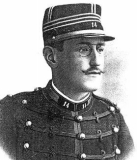
1859 Birth: Alfred Dreyfus: French artillery officer who will be falsely accused of giving French military secrets to foreign powers.
1870 Rome after being conquered by the Italian army, is incorporated into Italy by royal decree.
Russia: Launching: The battleship Potemkin:
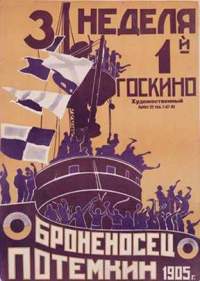
A pre-dreadnought battleship built for the Imperial Russian Navy's Black Sea Fleet. . . . The crew's rebellion against the officers in June 1905 (during that year's revolution) is now viewed as a first step towards the Russian Revolution of 1917. After the mutineers sought asylum in Constanța, Romania, and the Russians recovered the ship, her name was changed to Panteleimon. She accidentally sank a Russian submarine in 1909 and was badly damaged when she ran aground in 1911. During World War I, Panteleimon participated in the Battle of Cape Sarych in late 1914 and covered several bombardments of the Ottoman Bosphorus fortifications in early 1915. The ship was relegated to secondary roles after the first Russian dreadnought battleship entered service in late 1915. Panteleimon was captured when the Germans took Sevastopol in May 1918 and was handed over to the Allies after the Armistice in November 1918. She was abandoned when the White Russians evacuated the Crimea in 1920 and was finally scrapped by the Soviets in 1923. The 1905 mutiny inspired Sergei Eisenstein's 1925 silent propaganda film The Battleship Potemkin. [For further information, click here.]
1914 World War I: Various:
Belgium: The fortress of Antwerp falls.
Poland: Germans troops under Hindenburg reach the Vistula River south of Warsaw.
List Regiment:
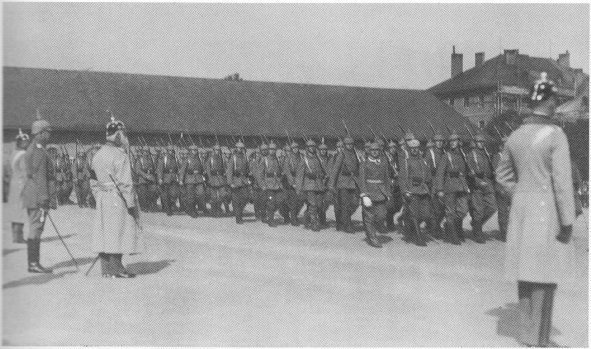
On this gloomy Saturday, the 1st Company of the 16th Bavarian Reserve Infantry�including Hitler�set off on foot for Lechfeld, at the confluence of the Lech and the Danube, seventy miles west of Munich. Carrying full packs, they march in the rain for 11 hours, before being allowed to rest for the night. "I was put up in a stable," he will write to Frau Popp on October 20, "soaked through and through. There was no possibility of sleep." [For further details, Click here.]
1915 World War I: Austrian and German forces capture Belgrade:
On October 9, 1915, Austro-Hungarian forces capture the Serbian capital of Belgrade, assisted in their defeat of Serbian forces by German troops under the command of General August von Mackensen.[For further details, Click here]
1915 World War I - List Regiment (Oct 7 - 14):
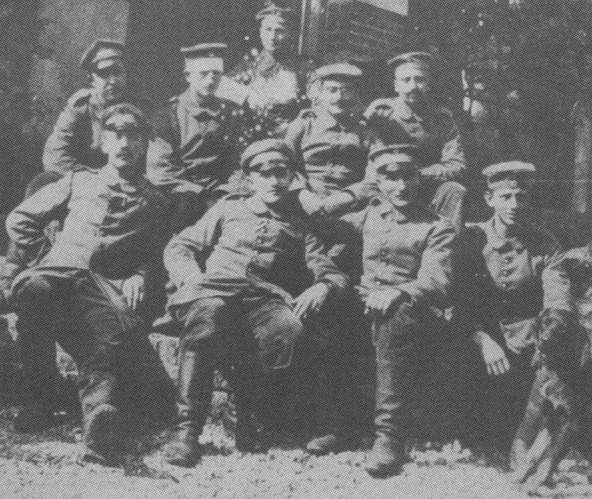
Gefreiter Adolf Hitler's regiment continues to serve with 16 Reserve Infantry Regiment at Fromelles. [For further details, Click here.]
1916 List Regiment (Oct 9 - Dec 3):
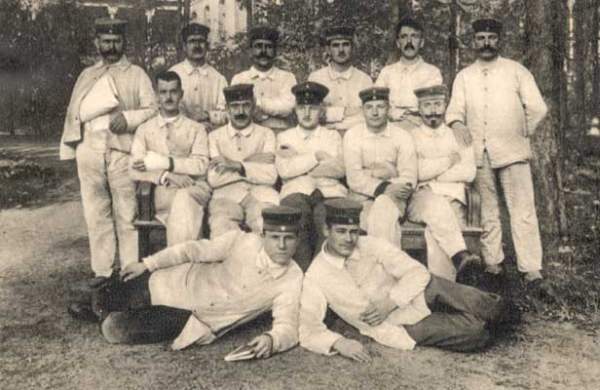
Hitler, who had been fighting almost continuously for two years, finds himself on a hospital train headed for a Red Cross hospital in Beelitz, near Berlin. While his wound is serious, he will recover quickly, and will later write Balthaser Brandmayer: "Am suffering from hunger-induced typhus because I cannot eat bread; additionally I am adamantly denied any sort of jam." [For further details, Click here.]
1917 World War I:
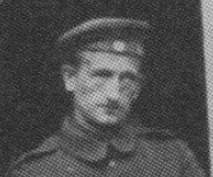
Hitler continues an eighteen-day furlough, accompanying Schmidt [above] on a visit to his sister in Dresden. After sightseeing stops at Brussels and Cologne, they hit Leipzig, a city Hitler especially enjoys. He is impressed by the 300-foot tall monument, Battle of the Nations, honoring the war-dead of 1812. "This has nothing to do with art," he tells Schmidt (above), "but it is enormous and beautiful." After spending some time with Schmidt in Dresden, Hitler goes off by himself to Berlin to spend a few days with yet another front-line comrade. In a postcard to Schmidt, he writes: "The city is marvelous. A real world capital. Traffic is still tremendous. Am gone almost all day. Now finally have opportunity to study the museums a little better. In short: there is nothing lacking." [For further details, Click here.]
1918 World War I (Sep 28-Oct 15):
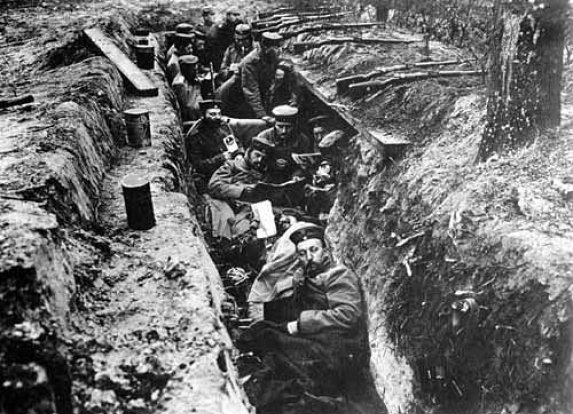
1927 Weimar: Landtag elections in Brunswick net the NSDAP 4.9%. This gives Hitler's party two out of 160 seats. (Maser)
1931: From a telegram from US Secretary of State Stimson to Consul Gilbert at Geneva:
Both the Chinese and Japanese have presented and argued their cases before the Council and the world has been informed through published accounts with regard to the proceedings there. The Council has formulated conclusions and outlined a course of action to be followed by the disputants; and as the said disputants have made commitments to the Council, it is most desirable that the League in no way relax its vigilance and in no way fail to assert all the pressure and authority within its competence towards regulating the action of China and Japan in the premises. On its part the American Government acting independently through its diplomatic representatives will endeavor to reinforce what the League does.
[See: Countdown to Infamy: Timeline to Pearl Harbor.]1933 The Third all-Polish BETAR conference begins in Warsaw. The delegates wear 'brown shirts.' (THP)
1934 Assassination: In Marseilles, Vlada Chernozamsky, a Croatian terrorist and Macedonian revolutionary associated with Croat terrorists in Hungary, assassinates King Alexander of Yugoslavia and the French Foreign Minister Louis Barthou. The two had been on a tour of European capitals in quest of an alliance against Nazi Germany. The assassinations bring the threat of war between Yugoslavia and Hungary, but confrontation is prevented by the League of Nations.
1938 Hitler gives a speech in Saarbruecken:
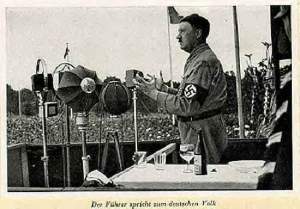
First, internal unity of the nation. I am convinced I am Leader of a manly people. I know what probably many in the rest of the world and even isolated ones in Germany do not seem as yet to know: namely, that the people of the year 1938 are not the people of 1918. Only those who were blind concerning National Socialism could overlook the tremendous work of education that the good philosophy of life has accomplished. There has been created today a community of spirit throughout our people of power and strength such as Germany never before has known.
1939 World War II: Various:
Hitler issues Directive No 6: distributed only to the four service chiefs: Keitel, Brauchitsch, Goering, and Raeder:
The aim of the Anglo-French conduct of war is to dissolve or disintegrate the 80-million-state (Germany), again so that in this manner the European equilibrium, in other words, the balance of power which serves their ends, may be restored. This battle, therefore, will have to be fought out by the German people one way or another. Nevertheless, the very great successes of the first month of the war could serve, in the event of an immediate signing of peace, to strengthen the Reich psychologically and materially to such an extent that from the German viewpoint there would be no objection to ending the war immediately, insofar as the present achievement with arms is not jeopardized by the peace treaty.
It is not the object of this memorandum to study the possibilities in this direction, or even to take them into consideration. In this paper I shall confine myself exclusively to the other case: the necessity to continue the fight, the object of which, as already stressed, consists, insofar as the enemy is concerned, in the dissolution or destruction of the German Reich. In opposition to this the German war aim is the final military dispatch of the West, that is, destruction of the power and ability of the Western Powers ever again to be able to oppose the state consolidation and further development of the German people in Europe. As far as the outside world is concerned, however, this internal aim will have to undergo various propaganda adjustments, necessary from a psychological point of view. This does not alter the war aim. It is and remains the destruction of our Western enemies....
The successes of the Polish campaign have made possible first of all a war on a single front, awaited for past decades without any hope of realization; that is to say, Germany is able to enter the fight in the West with all her might, leaving only a few covering troops in the East. The remaining European states are neutral either because they fear for their own fates or lack interest in the conflict as such or are interested in a certain outcome of the war, which prevents them from taking part at all, or at any rate too soon...
Belgium and Holland: Both countries are interested in preserving their neutrality but incapable of withstanding prolonged pressure from England and France. The preservation of their colonies, the maintenance of their trade, and thus the securing of their interior economy, even of their very life, depend wholly upon the will of England and France. Therefore in their decisions, in their attitude, and in their actions both countries are dependent upon the West in the highest degree. If England and France promise themselves a successful result at the price of Belgian neutrality, they are at any time in a position to apply the necessary pressure. That is to say, without covering themselves with the odium of a breach of neutrality, they can compel Belgium and Holland to give up their neutrality. Therefore, in the matter of the preservation of Belgo-Dutch neutrality, time is not a factor which might promise a favorable development for Germany...
The Nordic States: Provided no completely unforeseen factors appear, their neutrality in the future is also to be assumed. The continuation of German trade with these countries appears possible even in a war of long duration.
From the German Ambassador in the Soviet Union (Schulenburg) to the German Foreign Office:
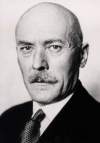
Molotov stated this evening at 9 p. m. that since October 1 no meeting had [taken place] with the Turkish Foreign Minister and that the outcome of the negotiations cannot as yet be surmised. Molotov expressed the view that in all likelihood a mutual assistance pact with Turkey would not be concluded. But under any circumstances the interests of Germany and the special nature of German-Soviet relations would be upheld. Molotov explained that the Soviet Government was pursuing the aim of inducing Turkey to adopt full neutrality and to close the Dardanelles, as well as to aid in maintaining peace in the Balkans.
Memorandum by the State Secretary in the German Foreign Office (Weizsaecker):
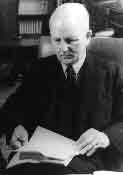
The Finnish Minister had announced a visit today to the Reich Foreign Minister. On the latter's instructions I received Herr Wuorimaa this afternoon. He presented the following facts: By virtue of the developments in the Baltic States, Russia had now penetrated so far into the Baltic that the balance of power there had been upset, and predominance threatened to pass to Russia. The lack of interest in this matter on the part of Germany had attracted attention in Finland, since there was reason there to assume that Russia intended to make demands on Finland identical with those made on the Baltic States. The Finnish Government had requested of Wuorimaa that he find out whether Germany remains indifferent to Russia's forward thrust in this direction and, should that not prove to be the case, to learn what stand Germany intends to take.
The Minister added that, on her part, Finland had tried her best during the last few weeks to regulate her commercial relations with Germany and maintain them on a normal basis and to carry out the policy of neutrality desired by Germany also. I answered the Minister in the sense of the enclosed instructions to Helsinki. Wuorimaa asked me to call him if we had anything further to add. From the words of the Minister it could be inferred that the Finnish Government was rather disturbed over the Russian demands and would not submit to oppression as did Estonia and Latvia. As regards this attitude on the part of the Minister I merely said that I hoped and wished that Finland might settle matters with Russia in a peaceful manner.
The State Secretary in the German Foreign Office (Weizsaecker) to the German Minister in Finland (Bluecher):
The Finnish Minister, who will call today at the Foreign Office, is to receive the following information: Our relationship to the three Baltic States rests on the well-known non-aggression pacts; our relationship to Denmark likewise. Norway and Sweden have declined non-aggression pacts with us, since they do not feel endangered by us and since they have hitherto not concluded any non-aggression pacts at all. Finland, to be sure, has such a pact with Russia, but declined our offer nevertheless. We regretted this circumstance, but were and are of the opinion that our traditionally good and friendly relations with Finland do not require any special political agreements. With this absence of problems in the German-Finnish relations it is very easy to understand why in his utterances of October 6th-concerned for the greater part with our neighbors-the Fuehrer did not mention Finland at all, just as he did not mention many other greater and smaller states.
From this it only follows that between us there are no points of difference. In Moscow, where in the negotiations of the Reich Foreign Minister, German-Russian relations were discussed in broad political outline and where a treaty of friendship came into being, the well-known definitive line of demarcation was fixed. West of this line lie the German interests, east of it we have registered no interests. We are therefore not informed as to what demands Russia intends to make on Finland. We presume, however, that these demands would not be too far-reaching. For this reason alone a German stand on the question becomes superfluous. But after the developments cited above we would hardly be in a position, in any case, to intervene in the Russian-Finnish conversations.
Memorandum by the State Secretary in the German Foreign Office (Weizsaecker):
The Swedish Minister called on me today to tell me that a serious situation would arise in the Baltic region if Russia were to make demands on Finland which threatened the independence and autonomy of Finland. The Minister wished to inform me of the preceding with reference to the close relations between Sweden and Finland. It should not be forgotten that, in contrast to Estonia and Latvia, strong and vigorous forces were in power in Finland, who would not submit to Russian oppression. I replied to the Minister that nothing was known to me about the probable Russian demands on Finland. To my knowledge the word Finland had not been mentioned in connection with the visit of the Reich Foreign Minister to Moscow. The situation was that we had not put forth any claims to any interests east of the well-known line. I should, however, assume that Russia would not set forth any wishes that were too far-reaching as against Finland and that, therefore, a peaceable solution could be found.
1940 Blitz: St. Paul's Cathedral bombed:
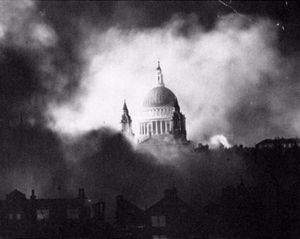
During the Battle of Britain, the German Luftwaffe launches a heavy nighttime air raid on London. The dome of St. Paul's Cathedral was pierced by a Nazi bomb, leaving the high altar in ruin. It was one of the few occasions that the 17th-century cathedral suffered significant damage during Germany's nearly ceaseless bombing raids on London in the fall of 1940.
According to tradition, a Roman temple to the goddess Diana once stood on Ludgate Hill at the site of St. Paul's Cathedral. In 604 A.D., King Aethelberht I dedicated the first Christian cathedral there to St. Paul. That cathedral burned, and its replacement was destroyed by Vikings in 962. A third cathedral was destroyed by fire in 1087 and was replaced by a grand Norman structure that was completed in the 13th century. In the 16th century, the fourth cathedral fell into disrepair and was damaged by fire, and further harm was done during the English civil wars of the 17th century. In the 1660s, the English architect Sir Christopher Wren was enlisted to repair the cathedral, but the Great Fire of London intervened, destroying Old St. Paul's Cathedral in 1666.
In the aftermath of the fire, Wren designed a new St. Paul's Cathedral, with dozens of smaller new churches ranged around it like satellites. The cathedral was Wren's masterpiece, featuring a baroque design and a prominent, stately dome. Wren himself set down the foundation block in 1675 and in 1710 put the final stone in place. When the architect died in 1723, he was buried with great ceremony in St. Paul's. An inscription near his tomb reads, Lector, si monumentum requiris, circumspice--Latin for "Reader, if you seek a monument, look about you." Many other notable British citizens later joined him in St. Paul's crypts, including the military heroes Lord Nelson and the Duke of Wellington.
St. Paul's Cathedral became an inspiration to the British people during World War II. In the Battle of Britain, the Luftwaffe attempted to bomb Britain into submission by pounding London and other major cities, but St. Paul's miraculously escaped major bomb damage, even as historic buildings nearby were reduced to rubble. Images of St. Paul's framed by smoke and fire became a symbol of Britain's indomitable spirit. Civilian defense brigades, including the St. Paul's Fire Watch, protected the structure from fire, and at one point an unexploded bomb was removed at great risk from the roof of the cathedral. Despite the damage caused on the night of October 9, 1940, the cathedral survived the Blitz largely intact. In 1944, St. Paul's bells rang out to celebrate the liberation of Paris, and in 1945 services marking the end of the war in Europe were attended by 35,000 people.(History.com)
1941 World War II: Various:

USA: President Roosevelt's message to Congress:
The practice of arming merchant ships for civilian defense is an old one. It has never been prohibited by international law. Until 1937 it had never been prohibited by any statute of the United States. Through our whole history American merchant vessels have been armed whenever it was considered necessary for their own defence. It is an imperative need now to equip American merchant vessels with arms. We are faced not with the old type of pirates but with the modern pirates of the sea who travel beneath the surface or on the surface or in the air destroying defenseless ships without warning and without provision for the safety of the passengers and crews. Our merchant vessels are sailing the seas on missions connected with the defense of the United States. It is not just that the crews of these vessels should be denied the means of defending their lives and their ships... [For the full text, Click here.]
From a radio speech by Hans Fritzsche:
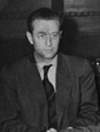
Today we can only say: Blitzkrieg or not, this German thunderstorm has cleansed the atmosphere of Europe. Certainly it is quite true that the dangers threatening us were eliminated one after the other with lightning speed but in these lightning blows which shattered England's allies on the continent, we saw not a proof of the weakness, but a proof of the strength and superiority of the Fuehrer's gift as a statesman and military leader; a proof of the German peoples' might; we saw the proof that no opponent can rival the courage, discipline, and readiness for sacrifice displayed by the German soldier, and we are particularly grateful for these lightning, incomparable victories, because-as the Fuehrer emphasized last Friday-they give us the possibility of embarking on the organization of Europe and on the lifting of the treasures of this old continent, already now in the middle of war, without its being necessary for millions and millions of German soldiers to be on guard, fighting day and night along this or that threatened frontier; and the possibilities of this continent are so rich that they suffice to supply all needs in peace or war.
1942 World War II: Various:
The Red Army ends its system of dual leadership by abolishing the position of the Communist political commissar in favor of a single military commander in its various units.
FDR to Stalin:
We are moving as rapidly as possible to place an air force under your strategic command in the Caucasus. I am now trying to find additional planes for you immediately and will advise you soon. I am also trying to arrange to have some of our merchant ships transferred to your flag to increase your flow of materials in the Pacific. I have just ordered an automobile tire plant to be made available to you. We are sending a large number of engines and other equipment as well as personnel. I am confident that our contemplated operation will be successful. The gallant defense of Stalingrad has thrilled everyone in America and we are confident of its success.
1944 World War II: Various:

British Prime Minister Winston Churchill arrives in Russia for talks with Joseph Stalin at the Third Moscow Conference. Soon, he and Stalin are discussing spheres of influence in the Balkans. Churchill's account:
The moment was apt for business, so I said, "Let us settle our affairs in the Balkans. Your armies are in Rumania and Bulgaria. We have interests, missions, and agents there. Don't let us get at cross-purposes in small ways. So far as Britain and Russia are concerned, how would it do for you to have ninety per cent predominance in Rumania, for us to have ninety per cent of the say in Greece, and go fifty-fifty about Yugoslavia?" While this was being translated I wrote out on half a sheet of paper: Rumania Russia 90% The others 10% Greece Great Britain 90% (in accord with USA) Russia 10% Yugoslavia 50-50% Hungary 50-50% Bulgaria Russia 75% The others 25% I pushed this across to Stalin, who had by then heard the translation. There was a slight pause. Then he took his blue pencil and made a large tick upon it, and passed it back to us. It was all settled in no more time than it takes to sit down . . . . After this there was a long silence. The penciled paper lay in the center of the table. At length I said, "Might it not be thought rather cynical if it seemed we had disposed of these issues, so fateful to millions of people, in such an offhand manner? Let us burn the paper." "No, you keep it," said Stalin.
On the northern front the Red Army reaches the Baltic coast, encircling Memel, the northernmost city in Germany.
1958 Death: Pope Pius XII:
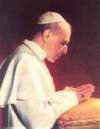
Original name Eugenio Maria Giuseppe Giovanni Pacelli (born March 2, 1876, Rome, Italy), head of the Roman Catholic church, who had a long, tumultuous, and controversial pontificate (1939-58). During his reign the papacy confronted the ravages of World War II (1939�45), the abuses of the Nazi, fascist, and Soviet regimes, the horror of the Holocaust, the challenge of postwar reconstruction, and the threat of communism and the Cold War. Deemed an ascetic and "saint of God" by his admirers, Pius has been criticized by others for his alleged "public silence" in the face of genocide and his apparently contradictory policies of impartiality during World War II but fervent anticommunism during the postwar period. [For further information, click here.]
1969 Czechoslovakia: frontiers are closed to tens of thousands of citizens bound for the West on private visits as new government travel restrictions go into effect.
1974 Death: German businessman Oskar Schindler:
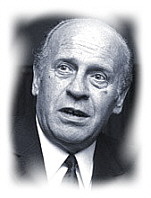
Credited with saving 1,200 Jews from the Holocaust, at the age of 66 in Frankfurt, Germany. A member of the Nazi Party, he ran an enamel-works factory in Krakow during the German occupation of Poland, employing workers from the nearby Jewish ghetto. When the ghetto was liquidated, he persuaded Nazi officials to allow the transfer of his workers to the Plaszow labor camp, thus saving them from deportation to the death camps. In 1944, all Jews at Plaszow were sent to Auschwitz, but Schindler, at great risk to himself, bribed officials into allowing him to keep his workers and set up a factory in a safer location in occupied Czechoslovakia. By the war's end, he was penniless, but he had saved 1,200 Jews. In 1962, he was declared a Righteous Gentile by Yad Vashem, Israel's official agency for remembering the Holocaust. According to his wishes, he was buried in Israel at the Catholic cemetery on Mount Zion.
1988 Death: Felix Wankel: developer of the Wankel rotary engine.
He was born in 1902 in the Black Forest town of Lahr and trained as a publisher in Heidelberg. His great interest was biographies of spies who specialized in science and technology. In the 1920's, Wankel and some friends opened a small workshop and experimented with motors. It was the beginning of an unusual career which was to produce what became one of the great forgotten inventions of the 20th century. The inventor himself was an oddity in that did not have an engineering background and never even held a driver's licence. Wankel's research came to prominence when the German arms industry expanded during the Nazi era. He was given backing which enabled him to open his own workshop in Lindau, on Lake Constance, and work on developing new motors.
The end of the war prevented him from putting some of his valves and seals into mass production. The French forces destroyed the workshop. He was subsequently able to continue his work with the support of industry. In April 1954, he came across the ingeniously simple idea of a motor which worked practically without valves. It used a triangular-shaped rotor which rotated inside a container shaped like the figure "8". The engine differed in four principal ways from the internal- combustion engine: it had rotor instead of piston, a so-called eccentric shaft in place of crankshaft, peripheral housing instead of cylinder and intake and exhaust port instead of valve and camshaft.
2006 North Korea announces that it has conducted its first nuclear weapons test.
Edited by Levi Bookin (Copy editor)
levi.bookin@gmail.com



Click to join 3rdReichStudies



Disclaimer: This site includes diverse and controversial materials--such as excerpts from the writings of racists and anti-Semites--so that its readers can learn the nature and extent of hate and anti-Semitic discourse. It is our sincere belief that only the informed citizen can prevail over the ignorance of Racialist "thought." Far from approving these writings, this site condemns racism in all of its forms and manifestations.
Fair Use Notice: This site may contain copyrighted material the use of which has not always been specifically authorized by the copyright owner. We are making such material available in our efforts to advance understanding of historical, political, human rights, economic, democracy, scientific, environmental, and social justice issues, etc. We believe this constitutes a "fair use" of any such copyrighted material as provided for in section 107 of the US Copyright Law. In accordance with Title 17 U.S.C. Section 107, the material on this site is distributed without profit to those who have expressed a prior interest in receiving the included information for research and educational purposes. If you wish to use copyrighted material from this site for purposes of your own that go beyond 'fair use', you must obtain permission from the copyright owner.
Please Note: The list-owner and the moderator of 3rdReichStudies are not responsible for, and do not necessarily approve of, the random ads placed on our pages by our web server. They are the unfortunate price one pays for a 'free' website.